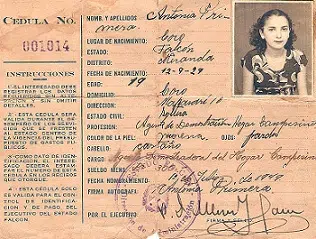 An anthroponym is a personal name of an individual . The concept of anthroponymy refers to the set of these names and their study.
An anthroponym is a personal name of an individual . The concept of anthroponymy refers to the set of these names and their study.
Anthroponyms are words that allow us to designate a particular human being . All people inserted in a society need identification with an element of this type, which allows them to be distinguished.
Depending on the period of history and culture, the characteristics of anthroponyms vary. In ancient societies, it was enough to use a single anthroponym , which could even carry a symbolic or descriptive meaning. Currently, it is common to combine at least two anthroponyms: one or two given names (the first name and the middle name) and a family name (the surname).
In this way, the fact that a human being has several anthroponyms helps facilitate unequivocal identification . It must be taken into account that the number of anthroponyms is limited , which results in repetitions. This can even occur even if three or more anthroponyms are used: Juan Carlos Pérez Martínez , for example , is a series of four anthroponyms that refers to many different subjects.
According to Genesis , the first book of the Bible , Adam was the anthroponym that named the first human. This name of Hebrew origin refers to the “Man of the Earth” or “Man of the Red Earth” . From then on, multiple anthroponyms began to emerge and develop, many of which have an uncertain origin.
In Ancient Rome , to mention one case, children used to be named with numbers: Sextus , Octavius , etc. With Christianity, anthroponyms related to moral values, sacraments, liturgies and dogmas became common, such as Esperanza , Gloria or Consuelo . Patronymics , meanwhile, are anthroponyms that designate lineage or affiliation (such as González , derived from Gonzalo ).
 Curiously, in close dealings with other people we never use more than one anthroponym, which in some cases is an affectionate nickname , a diminutive of their given name or a word that refers to some very distinctive characteristic of them. Throughout the same day, the same woman named Paloma, for example, can be called "Palomita", "Palo", "pretty", "divine" and many other ways by her friends.
Curiously, in close dealings with other people we never use more than one anthroponym, which in some cases is an affectionate nickname , a diminutive of their given name or a word that refers to some very distinctive characteristic of them. Throughout the same day, the same woman named Paloma, for example, can be called "Palomita", "Palo", "pretty", "divine" and many other ways by her friends.
It is also possible to use terms that, jokingly or not, describe a trait of their way of being or just the opposite. If a boy named Marcos is very lazy and a friend tells him "Hey, you employee of the month, come here!" , this is a mild way of negatively criticizing your lack of activity. On the other hand, if he were really a worker and called him that way, it could have a completely opposite meaning , even admiration.
The main point is that we do not usually use anthroponyms to address our loved ones unless one of two situations occurs, among others: their first name does not have an easy-to-pronounce or well-known diminutive ; Let's be angry with them. It is very interesting that this type of terms designed to organize societies and allow us to enjoy a series of benefits thanks to the possession of an identity document can also serve to express anger.
Another of the uses of the anthroponym is the formation of a lineage , as anticipated above when talking about the surname González . In our language and today we no longer use it in this exact way, since millions of people carry that same surname regardless of the name of their parents, but at least it serves to recognize that certain groups "have the same blood." In this framework, it is possible to speak of "the González" to refer to all the members of the same family.
